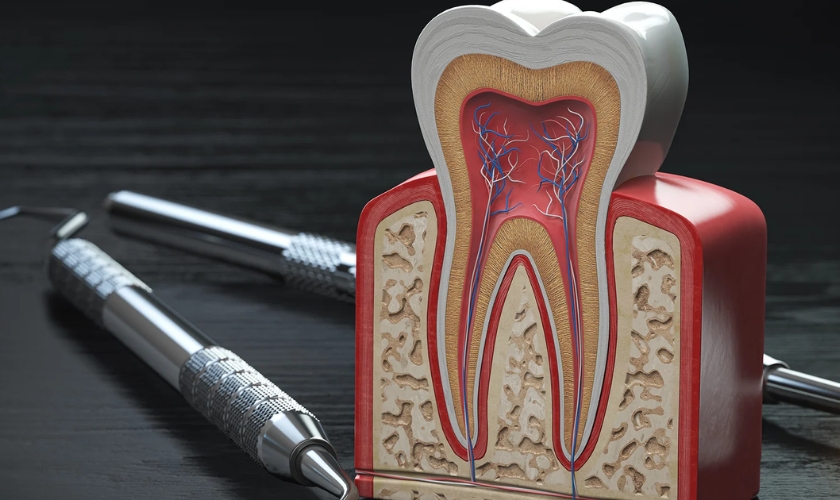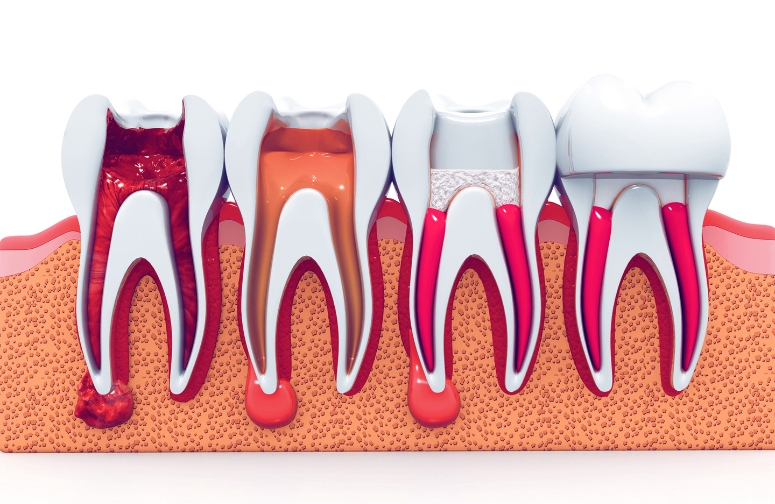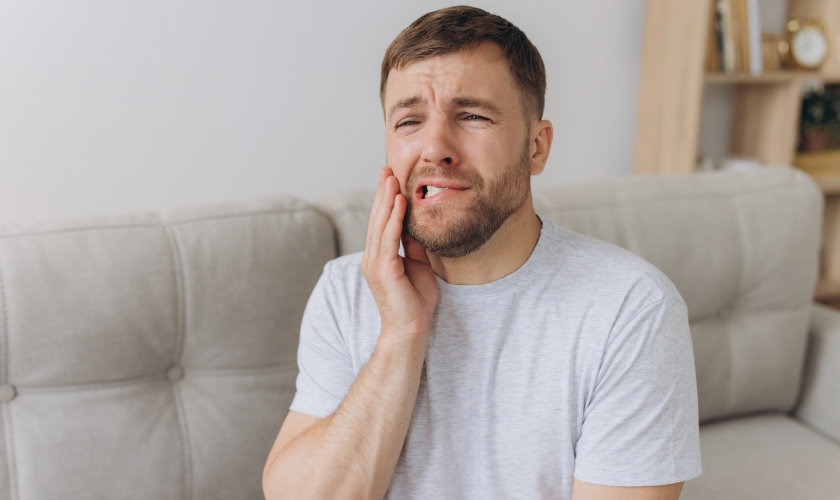
A root canal procedure is a lifesaver for a badly infected or decayed tooth. It removes the infected pulp, cleans the canals, and seals the tooth to prevent further issues. While the procedure itself is often performed with anesthesia and minimal discomfort, recovery does involve some aftercare to ensure the treated tooth heals properly and functions optimally.
This blog dives deep into essential aftercare tips for root canal recovery, helping you manage any discomfort, promote healing, and get back to enjoying your favorite foods pain-free.
Understanding Root Canal Recovery
The recovery time for a root canal can vary depending on the severity of the infection, the complexity of the procedure, and your individual healing rate. Generally, expect some mild discomfort for a few days following the treatment.
Here’s a breakdown of what to expect during the initial recovery phase (1-3 days):
- Sensitivity: The treated tooth might feel sensitive to pressure or temperature changes.
- Discomfort: Mild pain or throbbing sensation around the treated area is common.
- Swelling: Slight swelling in the gums surrounding the tooth may occur.
These symptoms are usually manageable with medication and proper care. If you experience severe pain, excessive swelling, or prolonged sensitivity, consult your dentist immediately.
Essential Aftercare Tips for a Smooth Recovery
Following these aftercare tips will significantly contribute to a smooth and speedy recovery:
1. Manage Discomfort with Medication:
Your dentist will likely prescribe pain medication to manage any post-procedural discomfort. Take the medication exactly as prescribed, and don’t hesitate to contact your dentist if the pain seems excessive or doesn’t subside within a reasonable timeframe.
2. Gentle Brushing and Flossing:
Maintaining good oral hygiene is crucial after a root canal. Brush twice daily with a soft-bristled toothbrush and gentle toothpaste. Flossing around the treated tooth is equally important, but be extra gentle to avoid irritating the gums.
3. Warm Salt Water Rinses:
Make a warm salt water solution by dissolving half a teaspoon of table salt in a glass of warm water. Swish gently for 30 seconds and spit. Repeat this 2-3 times a day, especially after meals, to help reduce swelling and promote healing.
4. Mind Your Diet:
Stick to a soft diet for the first few days after your root canal. This will minimize pressure on the treated tooth and allow for better healing. Soft foods include:
- Yogurt
- Mashed potatoes
- Soups
- Scrambled eggs
- Steamed vegetables
- Soft fruits
Gradually introduce harder foods once you feel comfortable chewing without pain.
5. Avoid Certain Foods and Beverages:
While recovering, avoid foods and beverages that can irritate the treated tooth or hinder healing. This includes:
- Hard, crunchy foods (nuts, chips)
- Chewy foods (caramel, chewy candy)
- Sticky foods (gummy bears)
- Hot or very cold beverages
- Acidic foods and drinks (citrus fruits, coffee)
6. Minimize Chewing on the Treated Tooth:
While eating, try to chew on the opposite side of your mouth to avoid putting pressure on the treated tooth. This will allow it to heal properly without any unnecessary strain.
7. Apply a Cold Compress:
If you experience swelling after the procedure, apply a cold compress to your cheek near the treated area for 15-20 minutes at a time. Repeat this every few hours as needed to reduce swelling and discomfort.
8. Rest and Relaxation:
Your body needs time to heal after a root canal. Get plenty of rest and avoid strenuous activities for the first few days. This allows your body to focus its energy on healing the treated tooth.
9. Follow-up Appointments:
It’s crucial to attend all follow-up appointments scheduled by your dentist. This allows them to monitor your healing progress and ensure everything is on track. Typically, a follow-up appointment is scheduled within a week of the root canal procedure, followed by another appointment for a permanent crown placement.
10. Maintain Good Oral Hygiene Practices:
Brushing twice daily with a soft-bristled toothbrush and flossing once a day are essential for long-term oral health and the success of your root canal treatment. Don’t forget to schedule regular dental checkups and cleanings to maintain a healthy mouth .
Potential Complications and When to See Your Dentist
While most root canals heal without complications, there are a few things to watch out for. Here’s when to contact your dentist:
- Severe or persistent pain: If the pain medication doesn’t manage the discomfort, or the pain intensifies after a few days, consult your dentist.
- Prolonged swelling: If swelling persists for more than a few days or worsens, it could indicate an infection.
- Bleeding: Minor bleeding after the procedure is normal. However, if excessive bleeding occurs, contact your dentist.
- Fractured tooth: In rare cases, the treated tooth may become brittle and fracture. If you experience a chipped or broken tooth, see your dentist right away.
- Drainage from the treated area: Any pus or drainage from the treated tooth is a sign of infection and requires immediate dental attention.
Long-Term Care for Your Root Canal
Following a successful root canal, your treated tooth can function normally for many years. Here are some tips for maintaining your root canal and preventing future problems:
- Maintain good oral hygiene: Brushing twice daily, flossing once a day, and regular dental cleanings are crucial for preventing future decay and infection.
- Avoid trauma to the tooth: Use caution when biting into hard foods or using your teeth for anything other than chewing food. Consider wearing a mouthguard during activities that could cause injury to your mouth.
- Regular dental checkups: Schedule regular dental checkups and cleanings with your dentist to monitor the treated tooth and ensure overall oral health.
- Permanent crown: In most cases, a permanent crown is placed on the treated tooth to restore its strength, functionality, and aesthetics. Ensure you get the permanent crown placed as recommended by your dentist.
By following these aftercare tips and practicing good oral hygiene, you can ensure a smooth recovery from your root canal and enjoy a healthy, functional tooth for years to come. Remember, if you have any concerns or questions during your recovery, don’t hesitate to contact your dentist for guidance.





